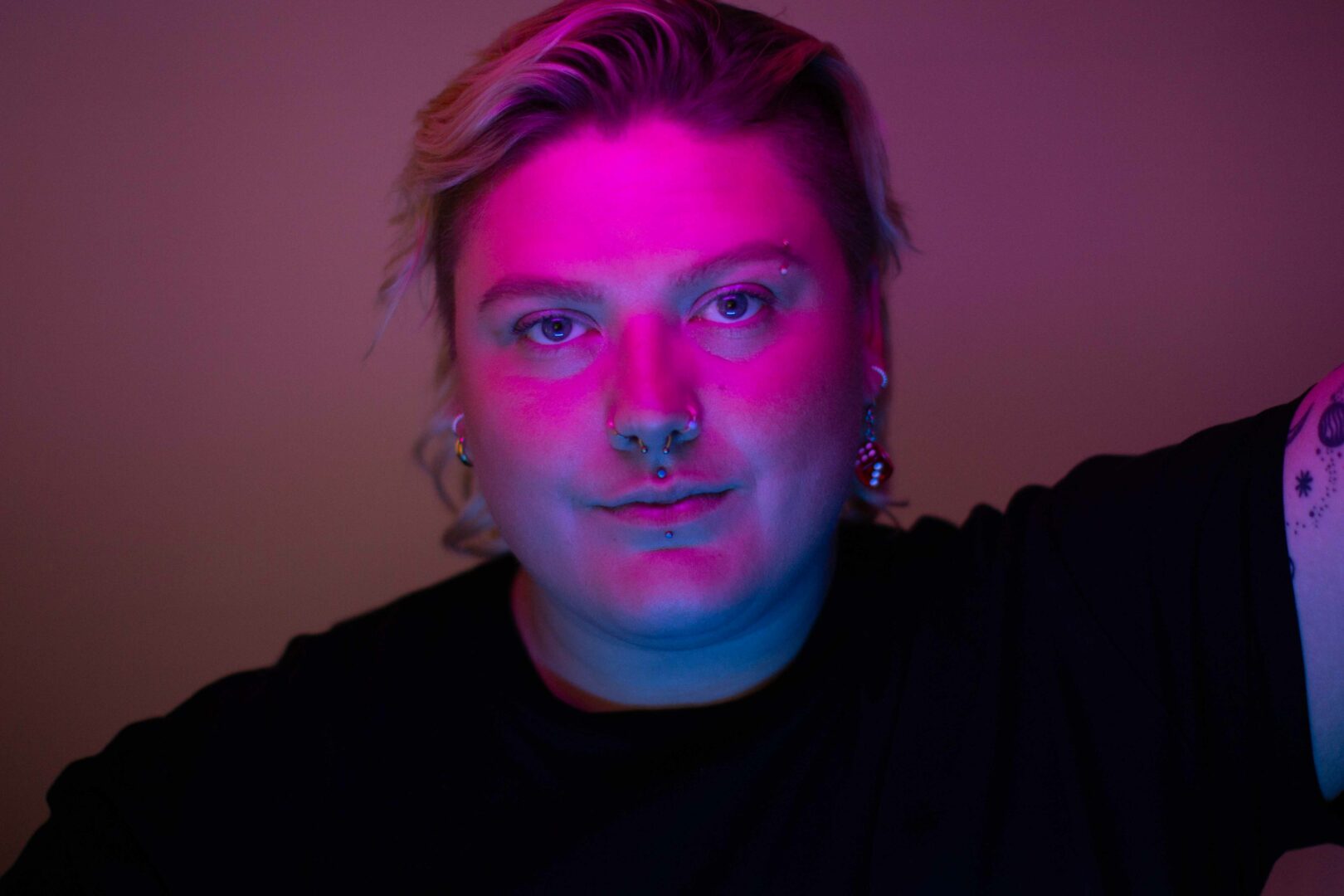We’re excited to introduce you to the always interesting and insightful Sam Brown. We hope you’ll enjoy our conversation with Sam below.
Hi Sam, really happy you were able to join us today and we’re looking forward to sharing your story and insights with our readers. Let’s start with the heart of it all – purpose. How did you find your purpose?
I grew up in a small town of rural Missouri. At a young age I had an awareness of not fitting in the “box” given to me. I didn’t know exactly where it was I would feel more accepted, not until much later in my life. I did gravitate towards people who were known as “oddballs” or “challenging”. This was some of the first impressions of purpose for me. I wanted to know more about what made these separations between “normal” and “abnormal” people. My childhood was tumultuous. I spent a lot of time alone and a lot of time deciphering my own thoughts and beliefs. I was severely traumatized and not given the tools to cope in a healthy, safe way. I was desperate to be seen and understood, or at least acknowledged. Spending so much time alone didn’t allow for me to meet that need. I began to repeat behaviors that I had learned from those “challenging, odd” people I was gravitating towards. It was a cry for help. It helped my understanding of the depth that likely created the behaviors in them and shed light on the ways I could try to communicate my needs to be met. This observation through experience was evolutionary, much like an ember to a flame. It ignited my realization of my passion and therefore purpose.
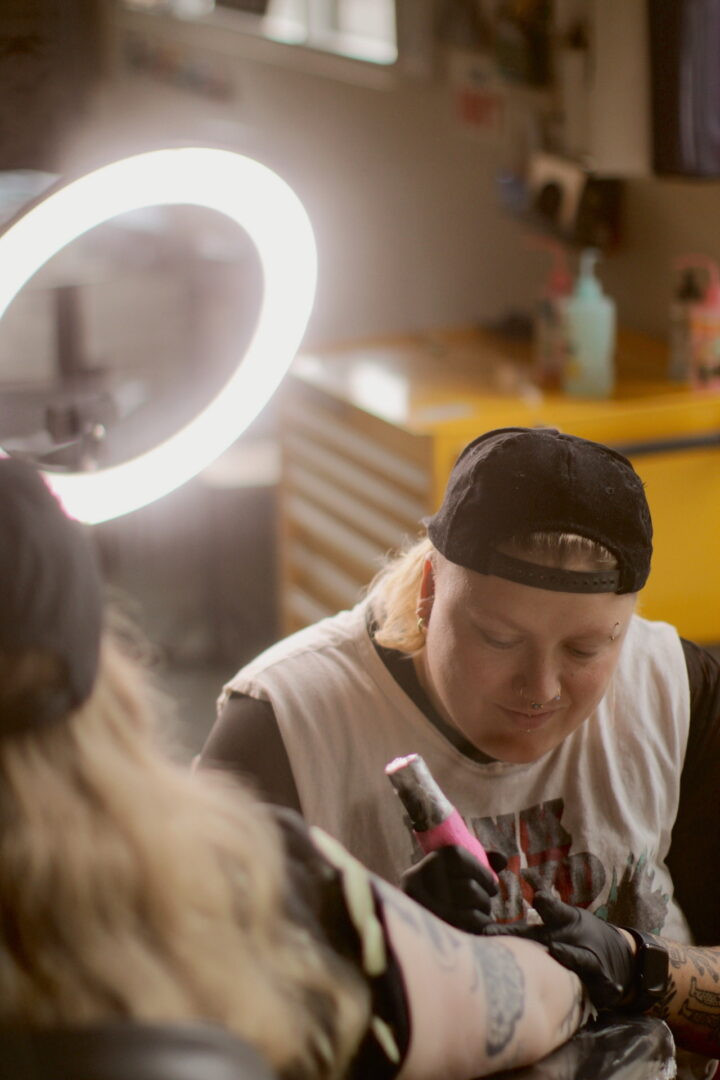
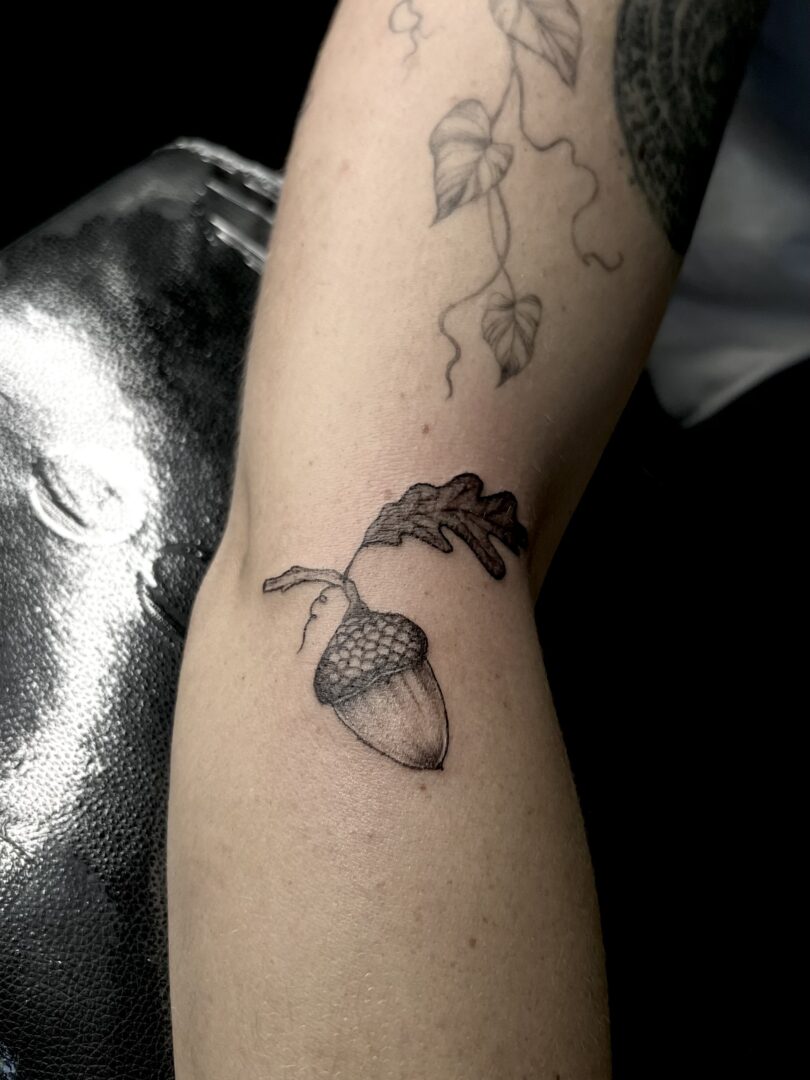
Thanks, so before we move on maybe you can share a bit more about yourself?
I like to call myself a cultivated creative. I say that with the knowing that plenty of creatives are natural born and usually destined. My story has parts of that, but most of what led me to my creative pursuits was first pursuing people. Currently, I am a body art practitioner, or tattoo artist. My focus in this field is working with LGBTQIA2S+, BIPOC, and Neurodivergent clients. I am bending the typical look, feel, and experience of getting a tattoo. I started adorning myself with tattoos to like the way my body looked after years and years of body dysphoria. As a trans person, the comfort of “home” in the body I live in is very hard to come by. Accessories, piercings, personal style, haircuts, and tattoos make me feel the most me, they give me euphoria. I wanted to personalize the experience of finding euphoria for people. My business goal is to make clients the center of the experience. Tattoos are very personal, vulnerable experiences for lots of folks. In my space, I can control the lights, the sounds, the feel of the chair, I ask what specific needs the client is looking for on the consent form. Some clients have a hard time advocating for their needs, typically they have also had an experience getting tattooed that has reinforced that their needs are insignificant and these individuals have been made to feel inadequate. Body art is an exchange, the least I can do is offer a safe, trauma informed care space for people to feel seen, held, and honored. Just like I have created a business that bends the “rules” of traditional emotional rapport of the tattoo industry, I also like to bend the rules of art. I take the lessons and tools given in my training to know what is best for a tattoo’s longevity (aging, healing, etc), I use that as the foundation and play with the design aspect. This is what most all tattoo artists do, its not as common to be an “ignorant style” artist. In urban places it is much more common, these are also places where art has less “social parameters” so to speak. By that I am talking about how people are influenced by art and what drives the market appeal which also decides the ‘success’ seeing as we live in a capitalistic economy where our success is driven by financial gain. Ignorant style is defying the norms and control.
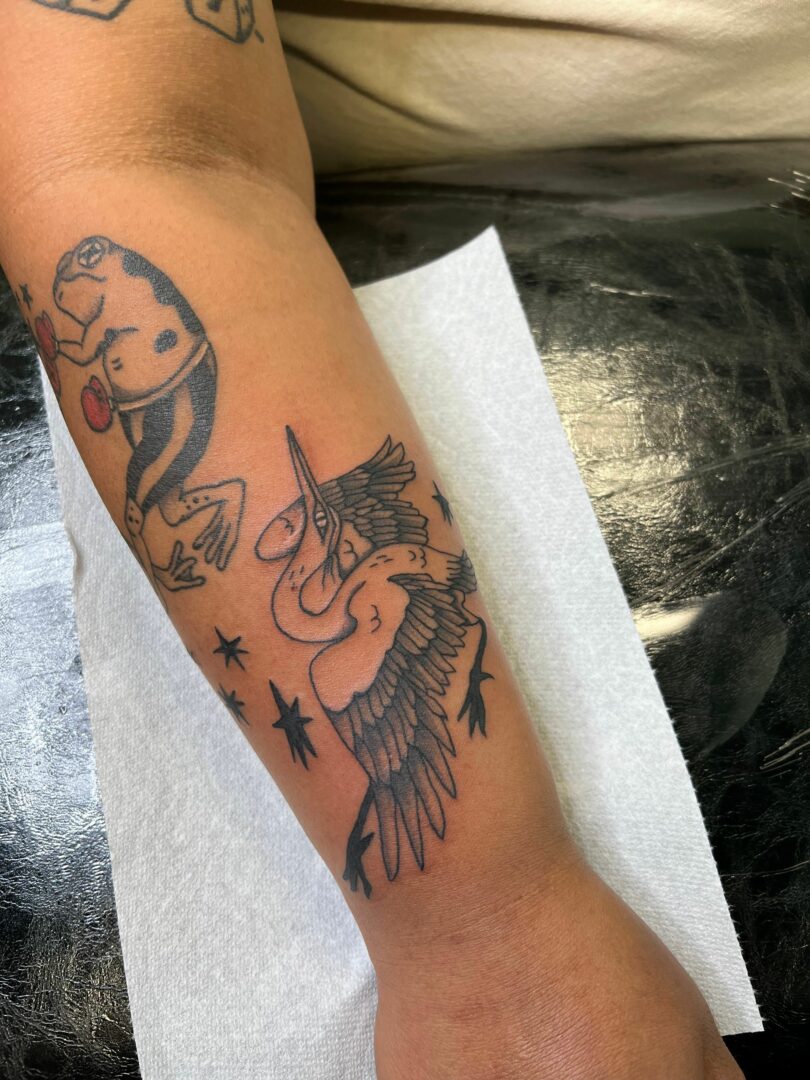
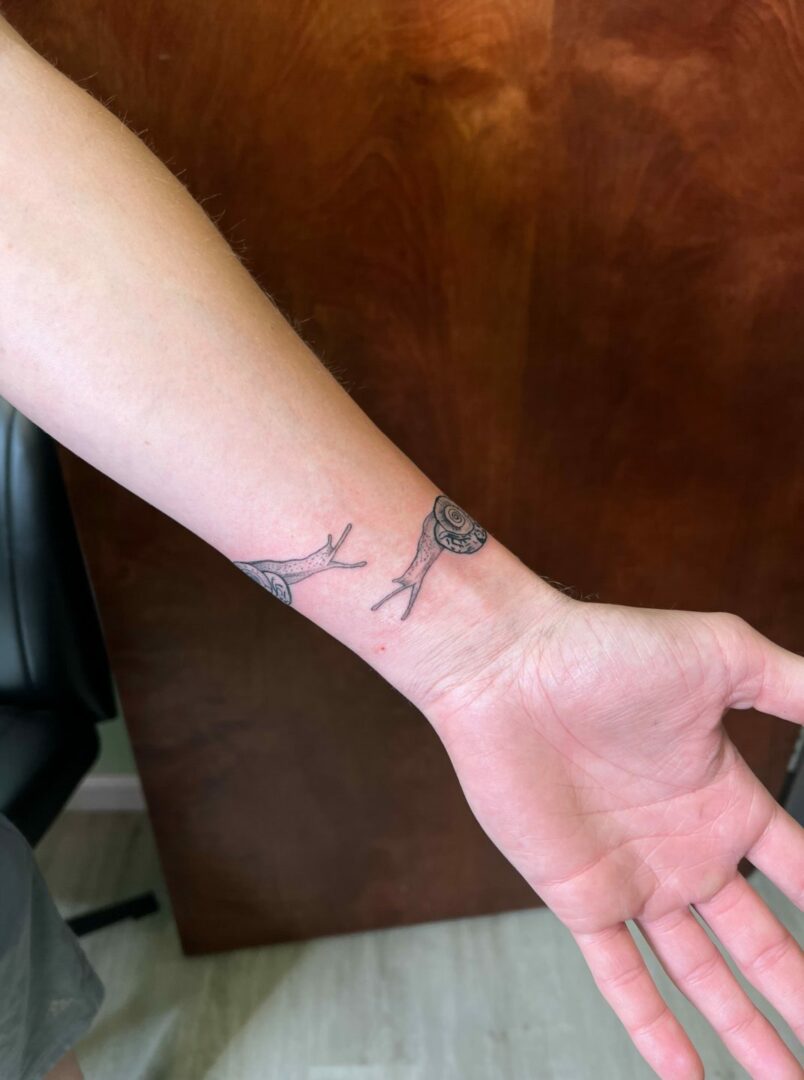
Looking back, what do you think were the three qualities, skills, or areas of knowledge that were most impactful in your journey? What advice do you have for folks who are early in their journey in terms of how they can best develop or improve on these?
My journey began with a knowledge of people. I used to work in social work, specifically with youth, but that will teach you more than you can imagine. Our youth are powerful, charismatic, flourishing minds. My primary quality and skill is knowing people and how to best personalize an experience. This is a constant learning area because every person is different. That leads to my second quality and skill which is communication and safety! These two things go hand in hand, truly. If folks feel safe, they are going to be able to attempt to say the hard or challenging things, which when you’re working with different people, creativity, and an intimate service, this is a must. Of course, having a creative edge and openness to learning it’s important. All three of these skills/ qualities are equal to me. I have to know I don’t know everything and I will always be learning. This helps me navigate the relationship part of my work and the creative part of my work. It challenges my art and my perspective of creative consumption. It inspires my drive to know more and keep growing! That’s life, baby!
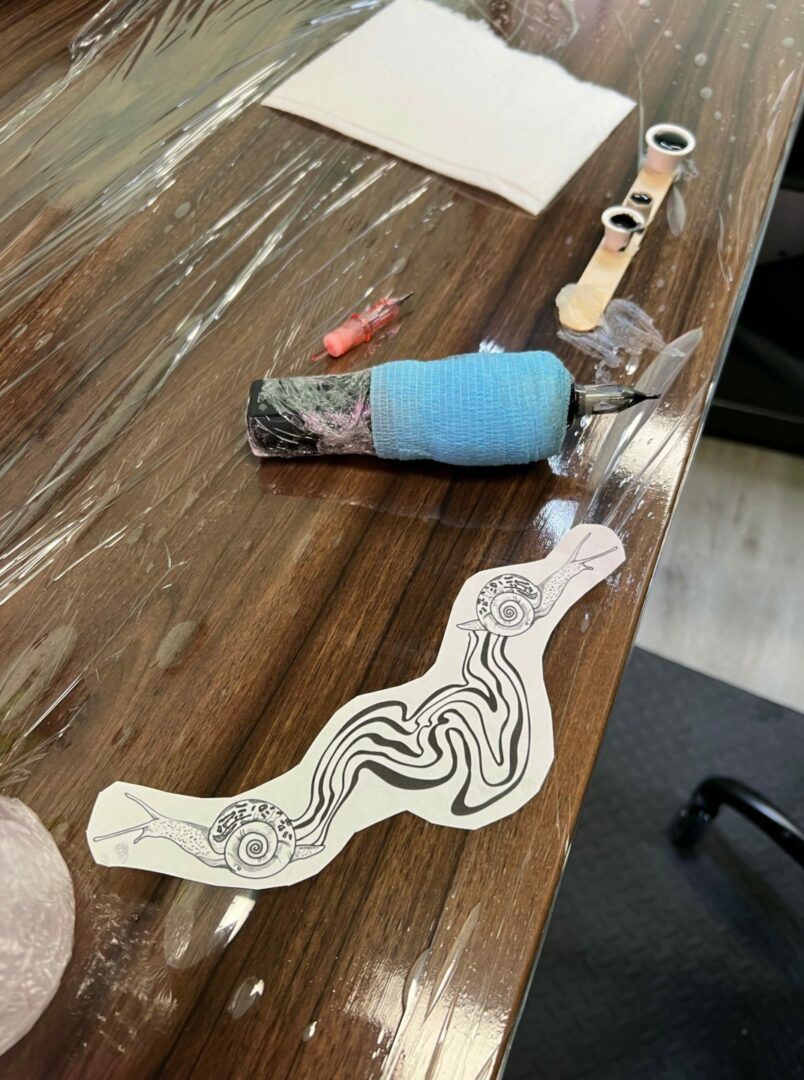
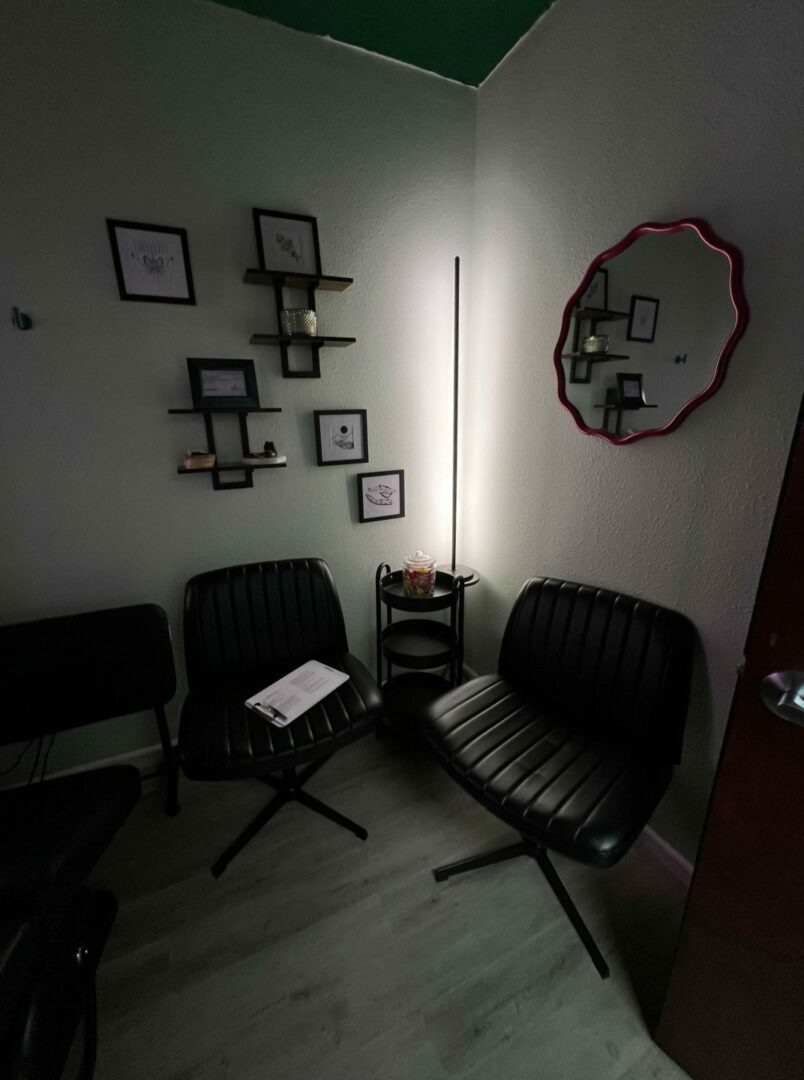
Alright so to wrap up, who deserves credit for helping you overcome challenges or build some of the essential skills you’ve needed?
Just to note first: I am still on this overcoming journey! The HARDEST part about being a full-time for-profit creative is the big ol’ monster of IMPOSTER SYNDROME. Oh wow, if there’s anything I have learned in this career it is that it just doesn’t necessarily get better… loaded thing to say, I know. When you are creating something to be purchased, loved, supported, or endorsed by someone else, your biggest battle is the opinion of another human!! Opinions are subjective, but when they are tied to your livelihood and passion it sure feels like they are the tell all be all. In my search of healing this mean little internal voice, I have found that everyone has one, everyone is trying to battle out their own voice, and everyone feels there is a “better or best” someone doing the thing they are also doing.
The biggest takeaway for me has been how PIVOTAL community is. It is so important to have people in the same field as you to bounce ideas, talk through the unseen mess that you both can commiserate and process through, and to have encouragement… consistently. There’s a quote by Theodore Roosevelt that says, “Comparison is the thief of joy.” I am guilty of this, oh so guilty. We all are, because the truth is we have been so highly conditioned to compare ourselves at every turn from the moment we are born. It’s all part of that capitalistic approach… someone has to be at the top and we are all so geared to get there, that we so quickly lose sight of our differences being the BEST part of our worlds and communities. We need community, we need encouragement, and we need space to be challenged WHILE being supported. It’s that simple.
Contact Info:
- Website: https://www.ebbandflowcreativespace.com/home
- Instagram: https://www.instagram.com/samadhiibtattoos/
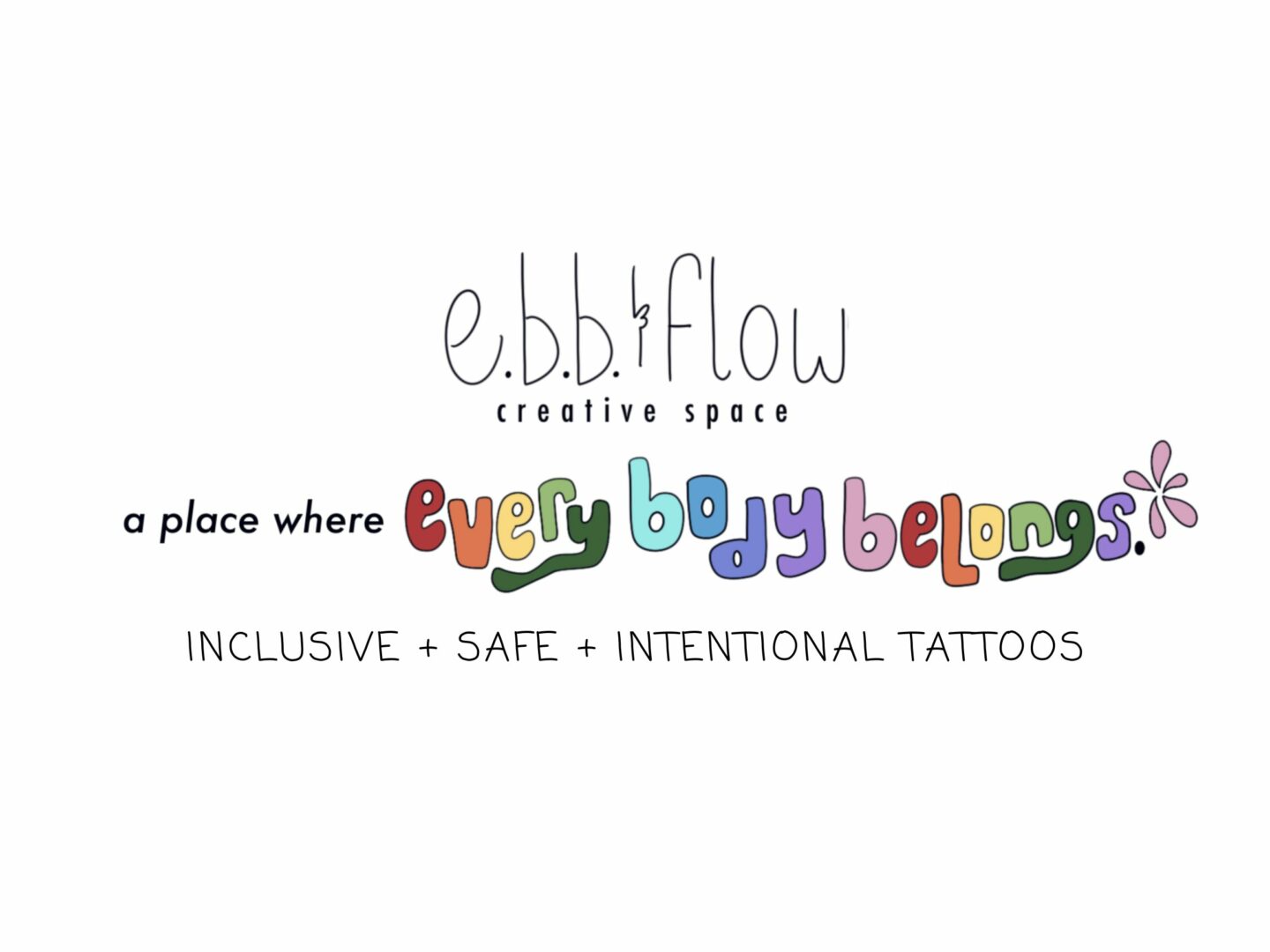
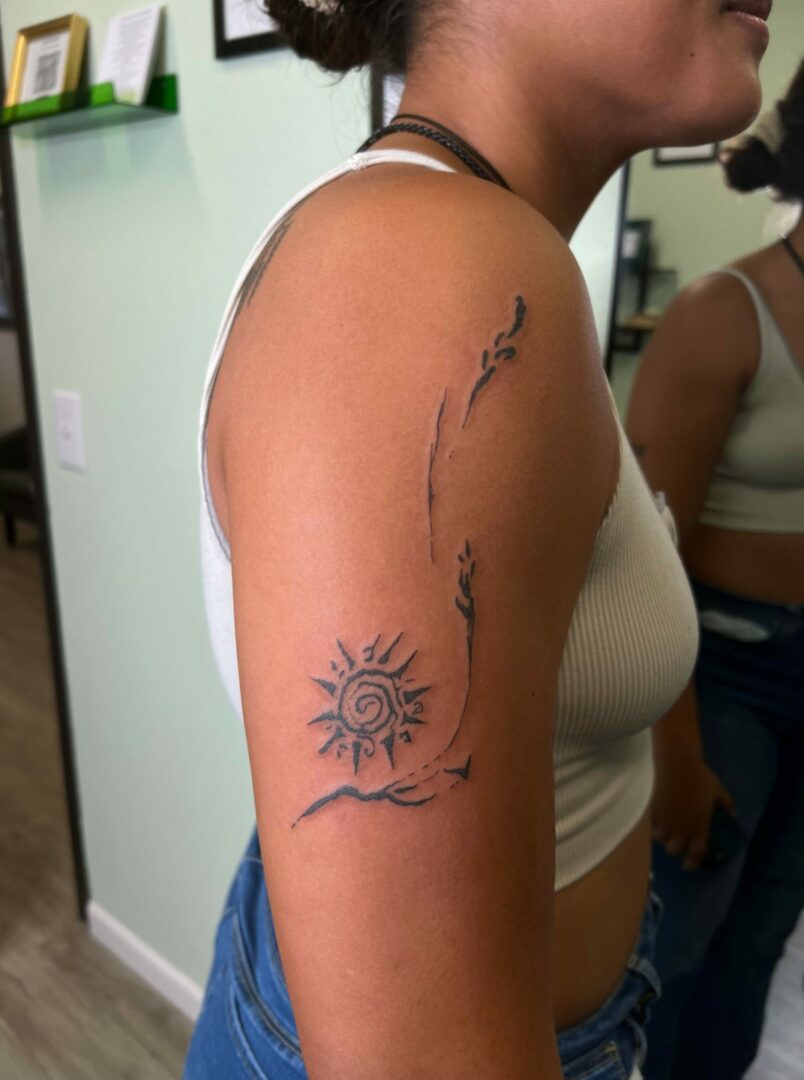
Image Credits
Brooklyn Wagner @brookologie
so if you or someone you know deserves recognition please let us know here.

